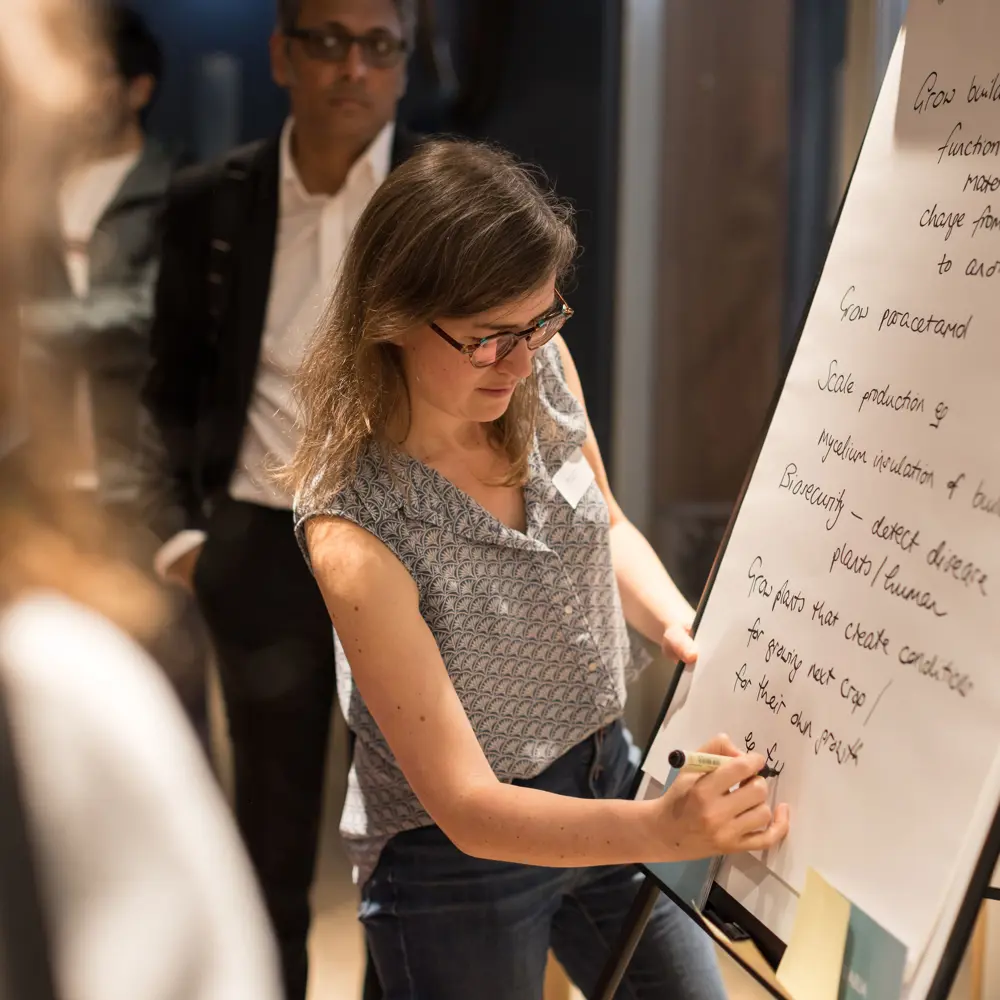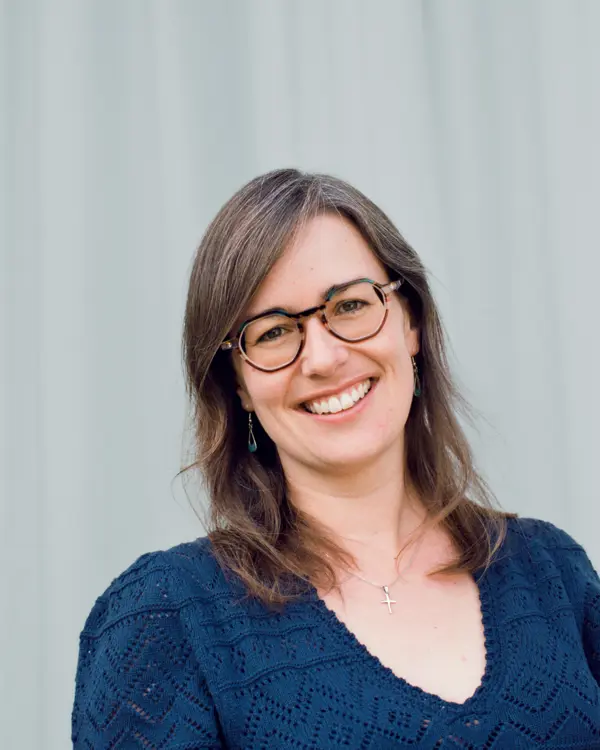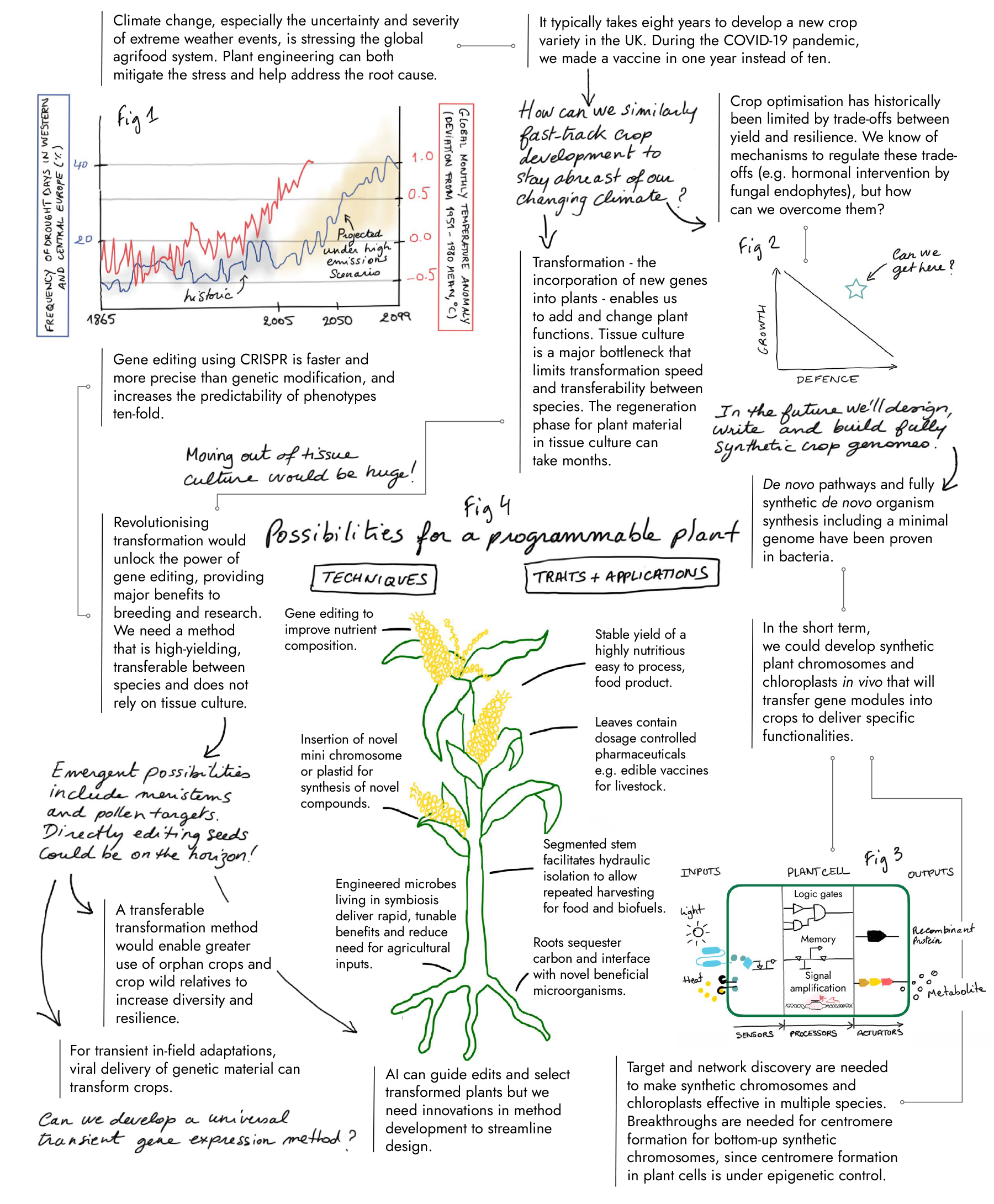What if we could programme plants to remove more CO2, fight drought, and deliver medicines to those in need?
Defined by our Programme Directors (PDs), opportunity spaces are areas we believe are likely to yield breakthroughs.
In Programmable Plants, we are harnessing advances in gene editing technologies and synthetic biology to transform our ability to address food insecurity and environmental degradation by allowing us to predictably and efficiently build new plants.
Beliefs
The core beliefs that underpin this opportunity space:
Today’s agricultural system is struggling to address the twin challenges of an unsustainable food supply and an unstable climate → we need a paradigm shift to accelerate agricultural innovation.
Plants represent 80% of Earth’s biomass and are rapidly, cost-effectively and widely distributed across our planet → plants represent an ideal technological platform to provide low-cost, sustainable resources at scale.
Advances in gene editing and genetic modification are revolutionising our ability to tailor the traits of organisms → we can predictably and efficiently develop new plants to provide all of society with abundant and sustainable resources: food, fuel, medicine, shelter, and beyond.

Programme: Synthetic Plants
To build a programme within an opportunity space, our Programme Directors direct the review, selection, and funding of a portfolio of projects.
Backed by £62.4m, this programme aims to unite expertise in synthetic biology and plant biology to catalyse a new generation of major crops that are more productive, resilient, and sustainable.
Opportunity seeds
Outside the scope of programmes, with budgets of up to £500k, opportunity seeds support ambitious research aligned to our opportunity spaces.
From landmine-clearing plants to leveraging stochasticity in synthetic biology, we’re funding 14 opportunity seeds in the Programmable Plants opportunity space.
Fast-Track Crop Improvement: Breaking Free from Tissue Culture
Sofia Kourmpetli, Cranfield University
Green PROTACs – Enabling Small Molecule (Re)programming and Manipulation of Plant Biology
Piers Hemsley, University of Dundee
A Universal Endosymbiont-Mediated Transient Gene Expression Platform for Plants
Ari Sadanandom, Durham University + Adriana Botes, Azotic Technologies
PlantPlug: Bioengineering Parasitic Plants into Programmable Modules
Pallavi Singh, University of Essex
CRY for Crop Development and Remote Control
Daniel Kattnig, University of Exeter
Idioblast Switch
Nicholas Holton, Hypocotyl Ltd
Programmable Plant Immunity by Design
Tolga Bozkurt, Imperial College London
Cross-Kingdom Immunity: Upgrading and Rewiring Plant Defenses
Philip Carella, John Innes Centre
FERN (Flora Electrophysiological Recording Network)
Samuel Jellard, Mycovolt Technologies
Rooting Out Danger
Richard Webster, Liverpool John Moores University
Smart Engineered Bacterial Conduits for Enhanced Crop Performance
Ciarán Kelly, Northumbria University + Emma Riley, Northumbria University
An Artificial Hybridisation System Enabled by Direct Transformation of Plant Mitochondria
Junwei Ji + Junliang Song, Plant Organelle Technologies Ltd
Robust Plant Engineering Through Stochastic Synthetic Biology
James Locke + Chris Micklem, University of Cambridge
Direct Seed Transformation for Rapid Crop Improvement Through Rational Engineering of Agrobacterium
George Bassel, University of Warwick

“Plants are the foundation of human life on Earth and are critical for securing our future. Recent advances in genetic technologies and synthetic biology can be unified to push the limits of what’s possible in plant science, to develop resilient crops and ecosystems for tomorrow’s world.”
Angie Burnett
Programme Director
Sign up for updates
Stay up-to-date on our opportunity spaces and programmes, be the first to know about our funding calls and get the latest news from ARIA.


